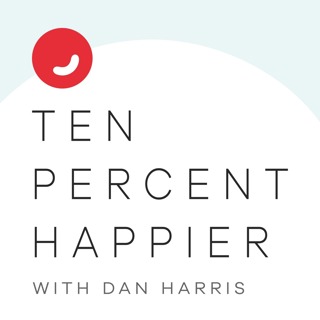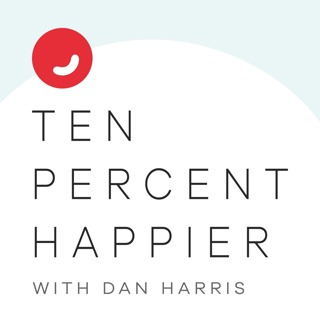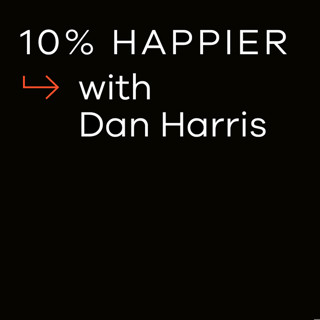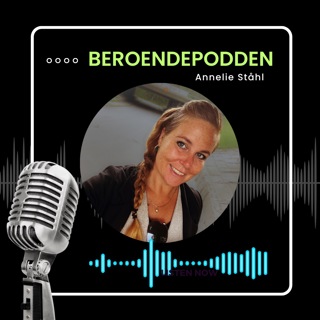
Holding it Together When Things Fall Apart | Pema Chödrön
We’re now almost a full year into the era of Covid restrictions, and I suspect that many of you, as I am, are starting to internalize the fact that, notwithstanding the vaccines, there’s likely a ways to go yet. And the mental health issues are piling up: The depression, anxiety, and addiction. Moms, people of color, and elderly people who can’t see their families are among those getting hit especially hard. To inject a little sunshine, and perspective, and wisdom, we thought it might make sense to re-post one of our favorite conversations of the last year. Pema Chödrön has seemingly been trying to prepare us for this pandemic for years, through a series of popular books, with titles such as When Things Fall Apart, Welcoming the Unwelcome, and The Wisdom of No Escape. But as you will hear, she is anything but gloomy. Like all of the great meditation teachers I’ve met, she has a lightness and a sense of humor about her. She was born Deirdre Blomfield in Connecticut. She lived a conventional life, going to UC Berkeley, becoming a school teacher, and having a pair of kids. But after a rough divorce, she found herself adrift. During this time, she discovered Tibetan Buddhism, shaved her head, and became a nun. Now in her mid-eighties, she lives in rural Nova Scotia, where she is the director of Gampo Abbey. We connected with her — back in May — on an old-school landline. I was recording my half of the conversation from a closet in our erstwhile apartment in New York City, which at the time was the epicenter of the outbreak in America. We talked about how to actually welcome the unwelcome. We also discussed how to befriend your demons, sympathize without being stupid, lighten up in the face of fear, and embrace chaos as “extremely good news.” One other thing: we would appreciate it if you could take a few minutes to help us out by answering a brand-new survey about your experience with this podcast. To do so, please go to https://www.tenpercent.com/survey. And thank you! Full Shownotes: https://www.tenpercent.com/podcast-episode/pema-chodron-repost
15 Feb 202146min

How (and Why) to Hug Your Inner Dragons | Richard Schwartz
How do you relate to the more difficult— and even ugly— aspects of your personality? How do you feel about yourself when you are, say, in a judgmental or vengeful or jealous mode? Is that an opportunity for self-laceration? My guest today agrees with me that one of the healthiest possible inner moves is to learn how to hug your dragons, instead of attempting to slay them (which is only likely to make them stronger). Dr. Richard Schwartz is a psychotherapist with a Ph.D. in marriage and family therapy. He founded something called the Internal Family Systems model of therapy, often referred to as IFS. His basic idea is that our consciousness is broken down into several parts. These parts can become rebellious and troublesome when traumatized or unattended. In this conversation, we talk about: how to relate to your parts more successfully; the overlap between IFS and Buddhism; and why meditation isn’t enough, in his view. We also attempt to dive in and do some IFS therapy work together. I’m not sure I was a particularly good patient, but you can judge for yourself. Full Shownotes: https://www.tenpercent.com/podcast-episode/richard-schwartz-323
10 Feb 20211h 11min

A Deeply Healthy Kind of Perfectionism | Jetsunma Tenzin Palmo
We have talked a lot on this show about how perfectionism can have pernicious impacts on your psyche. Today we’re going to talk about how, by contrast, a certain kind of perfection is very much worth aiming for. We’re diving into another Buddhist list in this episode: the six paramitas, or the six perfections. These are six mental skills that you will never perfect, most likely. But simply working on them can confer massive benefits. My guest is Jetsunma Tenzin Palmo. She was born Diane Perry in England, but 55 years ago, she traveled to India, where she ordained as a Tibetan Buddhist nun. At one point, she quite famously spent 12 years living and practicing in a cave in the Himalayas. She’s now the Founding Director of the Dongyu Gatsal Ling Nunnery in India. We start by discussing her extraordinary life. Then we dive into the six paramitas. We talk about: why patience is a kind of armor, why we need other people to push our buttons, the importance of dissolving the small self to get to the perfection that lies beyond, how to convince your ego to walk this path, and why she thinks a sense of humor should be the seventh paramita. Full Shownotes: https://www.tenpercent.com/podcast-episode/jetsunma-tenzin-palmo-322
8 Feb 20211h 6min

The Joy of Being Wrong | Adam Grant
My guest today makes a fascinating and potentially life-changing case. He argues that we need to reconsider how we view intelligence. He says that instead of viewing intelligence as the ability to think and learn, we should view it as the ability to rethink and unlearn. My guest, whose name is Adam Grant, says there is evidence that, in a fast-moving world, what he calls the “critical art of rethinking” can “position you for excellence at work and wisdom in life.” Not for nothing, in a world where many of us are stuck in our own information silos, the ability to rethink and open our minds may be one way we can dig ourselves out of our current societal divisions. Some of you may know Adam. He’s been on the show before. He’s an organizational psychologist, a TED speaker, a professor at Wharton, and the author of four New York Times bestselling books, including one that has had a big influence on me, called Give and Take, which is all about how generosity can contribute to professional success. I am happy to report that Adam has done it again: He has written a compelling and timely book. In this conversation, we talk about how to build the skill of rethinking; how the people who speak the most confidently are often the least competent; and what he calls the surprising upsides of imposter syndrome. Full Shownotes: https://www.tenpercent.com/podcast-episode/adam-grant-321
3 Feb 20211h 4min

The Buddha’s 8-Part Manual for a Good Life | Brother Pháp Dung
Today we’re talking about one of the Buddha’s first and most important lists: the Eightfold Path. I’m kinda surprised we’ve never done a deep dive into this list on the show before, but better late than never. Some context before we dive in: The Buddha, as many of you know, was a congenital list maker. His first and foundational list was the Four Noble Truths. This is the list that begins with “life is suffering” -- which is something of a mistranslation; it basically means that life will be unsatisfying if you are constantly clinging to things that will not last, given the nonnegotiable fact of relentless impermanence. The second noble truth is that the cause of our suffering is thirst or clinging. The third is that there is a way out of this mess. And the fourth is a sort of manual for waking up and suffering less. That fourth noble truth is the Eightfold path. It’s a list within a list. And to help us unpack it all is a fascinating person named Brother Pháp Dung. He was born in Vietnam, came to the US with his family as a child refugee, and was raised in LA. He later trained in architecture at USC before becoming a monk under his teacher, a towering figure in modern Buddhism named Thich Nhat Hanh. Phap Dung has a fascinating critique of our capitalist, consumerist culture. He’s not saying that we should opt out, just that we can use the Eightfold Path to create a different relationship to it all. So we dive into all of that in this chat -- but we begin with his personal story, which involves family strife and a lot of skepticism. Full Shownotes: https://www.tenpercent.com/podcast-episode/brother-phap-dung-320
1 Feb 202144min

How to Do Nothing | Jenny Odell
For an audience of meditators (or aspiring meditators), the idea of doing nothing shouldn’t be foreign. But, speaking from personal experience, it is very possible, especially for Type A people, to approach meditation with an agenda. In which case, sitting on the cushion can be very far from truly doing nothing. Enter Jenny Odell, who makes a very compelling case for truly… doing… nothing. In her work, she is challenging what for many of us, myself included, is a deep-seated and sometimes subconscious reflex: to constantly optimize and constantly be “productive.” She is a Lecturer in the Stanford Department of Art and Art History and author of the bestseller How to Do Nothing, which just came out in paperback. She comes to the subject of time from a very different perspective than our guest on Monday, Ashley Whillans. (If you haven’t listened to that episode, go do it; these two make a fascinating pairing.) In this conversation, Jenny and I talk about: letting go of our constant demand for productivity and learning to simply look around; the thrilling phenomenon of observing something so deeply that you actually cease to understand it; why moments of disgust, or even existential despair, can actually be quite instructive; and how to divest from what she calls “the attention economy”–and where to reinvest instead. Take a few minutes to help us out by answering a survey about your experience with this podcast! The team here is always looking for ways to improve, and we’d love to hear from all of you, but we’d particularly like to hear from those of you who listen to the podcast and do not use our companion app. Please visit http://www.tenpercent.com/survey to take the survey. Thank you. Full Shownotes: https://www.tenpercent.com/podcast-episode/jenny-odell-319
27 Jan 202159min

A New Way to Think About Your Time | Ashley Whillans
For many of us, in this pandemic, our relationship to time has become particularly fraught. You may be noticing that, with no limits on your work time, you are going into overdrive and feeling more crazed than ever. Or you may be feeling like you have too much time and are bored out of your mind. Or you may be feeling both. My guest, Ashley Whillans, is an Assistant Professor at Harvard Business School and author of the book Time Smart. She was recommended to us by a former guest, Laurie Santos, a professor from Yale and host of The Happiness Lab podcast. Ashley has a radical approach to managing your time -- or taking your time, to put a new spin on an old cliche. Her goal is to get you from a state of "time poverty" to "time affluence." In this conversation, we talk about: how to do a time audit; funding time, finding time, and reframing time; the surprising extent to which prioritizing time over money predicts happiness -- and what to do if you usually do the opposite; how to handle "time confetti"; and the value of canceling meetings. This is the first of a two-part series we are doing this week on time. On Wednesday, we’re going to talk to someone with a rather different approach. Her name is Jenny Odell and she wrote a bestseller called How To Do Nothing. Take a few minutes to help us out by answering a survey about your experience with this podcast! The team here is always looking for ways to improve, and we’d love to hear from all of you, but we’d particularly like to hear from those of you who listen to the podcast and do not use our companion app. Please visit https://www.tenpercent.com/survey to take the survey. Thank you. Full Shownotes: https://www.tenpercent.com/podcast-episode/ashley-whillans-318
25 Jan 20211h 14min

Non-Preachy Ethics | Jozen Tamori Gibson
We’re diving in on another Buddhist list today. One of the many things I like about the Buddha is that, as far as I can tell, he pretty much always aims his messages, even the hard-to-swallow ones, at the pleasure centers of the brain. Even when he’s talking about ethics, which could come off as preachy or overly abstemious. Today, we’re going to talk about the Five Precepts. The Precepts are kind of like the Buddhist version of the Ten Commandments. Except, as you will hear, there is, by design, an enormous amount of flexibility in how you can interpret and apply these precepts. And undergirding it all is, as mentioned, self-interest. The reason not to steal or lie or kill is that, in the end, it protects your mind. My guest is Jozen Tamori Gibson, who has trained in the Sotō Zen and Theravada traditions, is on the Teacher’s Council for New York Insight Meditation Center, and teaches in a variety of other settings, including the Insight Meditation Society. Jozen’s pronouns are they/them. Quick note before we dive in: Jozen lives on a busy street, so you will sometimes hear a little bit of background noise. Take a few minutes to help us out by answering a survey about your experience with this podcast! The team here is always looking for ways to improve, and we’d love to hear from all of you, but we’d particularly like to hear from those of you who listen to the podcast and do not use our companion app. Please visit www.tenpercent.com/survey to take the survey. Thank you. Where to find Jozen Tamori Gibson online: Website: https://www.dharma.org/teacher/jozen-tamori-gibson/ Social Media: • Instagram: https://www.instagram.com/jozentamorigibson/?hl=e Book Mentioned: • “Experience of Insight” Audiobook: https://www.audible.com/pd/The-Experience-of-Insight-Audiobook/1645470377 Full Shownotes: https://www.tenpercent.com/podcast-episode/jozen-tamori-gibson-317
20 Jan 20211h 3min






















